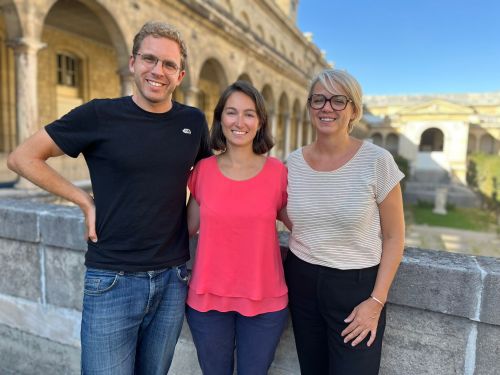Orakl Oncology Combines Data and Biology to Bring New Drugs to Cancer Patients Through Innovative Approach

Cancer incidence is on the rise, particularly among younger adults. However, most new drug compounds fail to progress through clinical trials. French entrepreneur Fanny Jaulin, founder of Orakl Oncology, attributes this problem to clinical trial design.
"Clinical trials are not designed to test the effectiveness of a drug in real-world conditions," she explained. "Just because a drug isn’t successful in clinical trials doesn’t mean it’s not a good drug." As a result, there is a pressing need for better ways to trial new molecules, especially for cancers that have seen little innovation in recent decades.
The Challenge of Clinical Trial Design
Clinical trial design has been criticized for being too rigid and inflexible. Trials often rely on average patient data, which can be misleading when dealing with complex diseases like cancer. Cancer is a highly heterogeneous disease, with each tumor being unique. This uniqueness makes it challenging to develop effective treatments that work across the board.
The Role of AI in Clinical Trial Design
AI has emerged as a promising solution to this problem. Fanny Jaulin’s startup, Orakl Oncology, applies AI to improve clinical trial design. However, she acknowledges that Orakl is not alone in this endeavor. "AI is becoming table stakes in drug discovery," she said.
Orakl operates at the intersection of data and biology, which sets it apart from companies that focus solely on one or the other. The company’s approach combines the strengths of both fields to create a hybrid model that better accounts for the complexity of cancer.
The Importance of Data and Biology
The data side of Orakl’s approach deals with the fact that each tumor is unique. This involves analyzing 40 variables per patient, which may be more than what larger competitors have in their corpus. However, this dataset is still smaller compared to its competitors.
On the other hand, the biology side of Orakl’s approach focuses on taking into account the complexity of cancer. The company uses organoids, which are miniaturized and simplified in vitro versions of an organ that can be used for trials. This allows researchers to study the behavior of cancer cells in a more controlled environment.
Orakl’s Products: O-Predict and O-Validate
With its hybrid approach established, Orakl plans to commercialize two products: O-Predict and O-Validate. O-Predict helps customers forecast patient response to a drug candidate, making it better suited for drug developers. On the other hand, O-Validate allows researchers to validate the results of clinical trials using AI and data analysis.
Commercialization Plan
Orakl’s commercialization plan will be funded by its recent seed round, which brings the company’s total capital raised to date to nearly €15 million. The funds will be used to build a commercial team to close contracts with customers.
However, Fanny Jaulin emphasizes that this is not her long-term goal. "My goal is to unblock the precision medicine discovery process to get as many drugs as possible to patients," she said.
The Future of Cancer Treatment
Cancer treatment has become a chronic disease, and the therapeutic arsenal is undersized for what’s at stake. Orakl’s innovative approach using AI and data analysis can help bridge this gap. By improving clinical trial design and patient outcomes, the company aims to make cancer treatment more effective and accessible.
AI in Cancer Treatment: A Growing Field
AI has emerged as a key player in cancer treatment. Companies like Orakl are pushing the boundaries of what’s possible by combining data analysis with biology. This field is still in its early stages, but it holds tremendous promise for improving patient outcomes.
Challenges and Opportunities in AI-Powered Cancer Treatment
While AI-powered cancer treatment offers many benefits, it also comes with challenges. These include issues related to data quality, patient consent, and regulatory frameworks. However, these challenges also present opportunities for innovation and collaboration.
Conclusion
The rise of cancer incidence highlights the need for innovative approaches in clinical trials. Orakl Oncology’s use of AI and data analysis offers a promising solution to this problem. By improving clinical trial design and patient outcomes, the company aims to make cancer treatment more effective and accessible. As the field continues to evolve, we can expect to see even more exciting developments in the application of AI in cancer treatment.